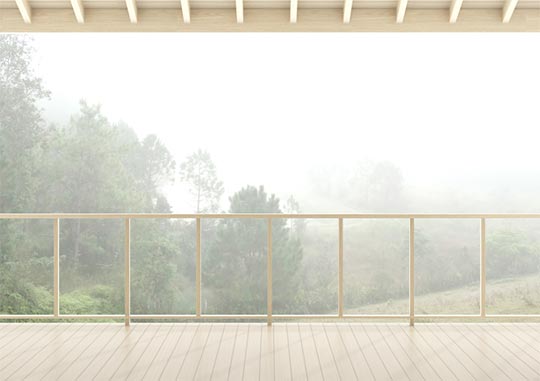
What rules need to be observed before installing a privacy screen?
Privacy screens are a fantastic way to secure your personal space and shield yourself from unwanted attention. However, it's crucial to understand the relevant laws and regulations beforehand to avoid legal complications.
Installing your privacy screen
Installation methods for privacy screens can vary based on the type you choose. Roller models, for instance, can be easily attached to existing structures like fences. On balconies, attaching the screen to the railing is a common approach.
Local regulations in the UK
In the UK, the installation of privacy screens is subject to local council regulations, particularly regarding their placement and height. UK regulations can vary significantly between local authorities.
Understanding UK planning permissions and height restrictions
Consulting your local council: It's essential to check with your local council for any specific rules or guidelines. This is particularly important if your property is in a conservation area, near listed buildings, or in a designated Area of Outstanding Natural Beauty.
General height restrictions: While specific height limits can vary, a general rule of thumb is that fences, walls, and gates should not exceed 2 meters in height. This can change to 1 meter if the screen is adjacent to a highway used by vehicles or the footpath of such a highway.
Planning permission: In certain cases, especially if your screen exceeds these general height limits or if your property is in a sensitive area, you may need to seek planning permission. Without this, the installation of a tall privacy screen could be considered a planning breach, potentially leading to enforcement action.
Considerations for listed properties and conservation areas: If your property is listed or in a conservation area, there are stricter controls on what you can and cannot do. In such cases, it's always advisable to consult with the council before making any changes.
Remember, while these guidelines offer a general overview, it's crucial to verify the specific requirements with your local council in the UK to ensure compliance and avoid any legal complications.

Regulations for privacy screens
Choosing the type of privacy screen
There's a variety of privacy screens available, each without specific regulatory requirements. Your choice should align with your personal needs and aesthetic taste. Some specific rules vary based on the installation site:
- On balconies: especially in condominiums, there might be restrictions.
- For shared fences: agreements with neighbours are often required.
- For plant-based screens: adhere to the legal distances outlined in the Civil Code.
Tips for wind-resistant fencing
In windy areas, reinforcing your privacy screen's fixtures is crucial to prevent damage.

Specific rules for installing a privacy screen
Conclusion
Installing a privacy screen is an excellent way to enhance your outdoor area. By adhering to the latest regulations and selecting appropriate materials, your privacy screen will be not only legal but also appealing and long-lasting. For any inquiries or assistance, the Scenolia experts are ready to help.
Explore our complete range of buying guides for privacy screens (covering regulations, materials, prices, design, installation, maintenance, and more).